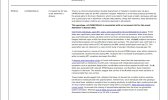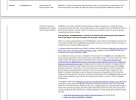Very interesting, thanks for sharing! A few more papers:
The effect of high dose melatonin on cardiac ischemia-reperfusion Injury (FYI: ischemia-reperfusion injury is: tissue damage caused when blood supply returns to tissue after a period of ischemia or lack of oxygen)
The effect of high dose melatonin on cardiac ischemia-reperfusion Injury (FYI: ischemia-reperfusion injury is: tissue damage caused when blood supply returns to tissue after a period of ischemia or lack of oxygen)
- This study showed that high dose melatonin offered protection against this injury by "scavenging the free radicals and could have a potential clinical use in the management of myocardial ischemia"
- The test subjects were rats, however. The rats that received melatonin, received 50 mg/kg i.p, Sigma, M-5250, St. Louis, MO, USA. (I'm guessing that's where they got their melatonin from)
- Researchers conclude: Our results suggest that melatonin, especially at a dose of 50 mg/kg, has a potent neuroprotective effect and can preserve peripheral neural fibers from lipid peroxidative damage after blunt trauma. With further investigations, we hope that these data may prove useful to clinicians who treat patients with nerve injuries.
- Rats were also used in this study: The SNI plus low-dose or high-dose melatonin groups received intraperitoneal melatonin at doses of 10 mg/kg or 50 mg/kg, respectively.
- Their whole abstract is worth posting I think: Amyotrophic lateral sclerosis (ALS) is the collective term for a fatal motoneuron disease of different etiologies, with oxidative stress as a common molecular denominator of disease progression. Melatonin is an amphiphilic molecule with a unique spectrum of antioxidative effects not conveyed by classical antioxidants. In preparation of a possible future clinical trial, we explored the potential of melatonin as neuroprotective compound and antioxidant in: (1) cultured motoneuronal cells (NSC-34), (2) a genetic mouse model of ALS (SOD1(G93A)-transgenic mice), and (3) a group of 31 patients with sporadic ALS. We found that melatonin attenuates glutamate-induced cell death of cultured motoneurons. In SOD1(G93A)-transgenic mice, high-dose oral melatonin delayed disease progression and extended survival. In a clinical safety study, chronic high-dose (300 mg/day) rectal melatonin was well tolerated during an observation period of up to 2 yr. Importantly, circulating serum protein carbonyls, which provide a surrogate marker for oxidative stress, were elevated in ALS patients, but were normalized to control values by melatonin treatment. This combination of preclinical effectiveness and proven safety in humans suggests that high-dose melatonin is suitable for clinical trials aimed at neuroprotection through antioxidation in ALS.
- More info from the paper itself: Patients were treated for 11.5 ± 1.2 (2–24) months. Rectal application immediately achieved high plasma and urinary melatonin levels, but still maintained–at a higher niveau–a day/night pattern (Fig. 4A and suppl. Fig. 3). Follow-up analysis after 2 months showed that melatonin plasma levels stayed in the expected range, indicating that continuous melatonin administration does not lead to accumulation or increased metabolism. No adverse effects were observed nor reported. Mean routine laboratory data remained essentially unchanged. Several parameters showed typical fluctuations, e.g., associated with physical stress or intercurrent infections (creatine kinase or leucocytes), but none of them likely to be related to melatonin. In two cases, the discontinuation of riluzole revealed that temporarily increased transaminase values were the result of riluzole rather than melatonin. Some patients reported initially faster sleep onset (n = 5), improved sleep quality (n = 15), and better sleep continuation (n = 3), while others did not find their sleep changed (n = 14). No signs of hangover or increased fatigue during daytime were noted. Melatonin medication was well accepted by patients, and only eight discontinued treatment: five at the end stage, three with extremely rapidly progressing disease, who refused any medication. A total of 13 patients died (respiratory failure), most of them entering the safety study at an advanced disease stage (mean ALSFRS upon entry 23.6 ± 1.8; range 12–31). The ALSFRS scores from study entry to 1 yr of follow-up for all patients (n ¼ 31) are presented in Fig. 4B.
- The patients received the high dose melatonin in the evening.
Last edited:



 I do practice intermittent fasting, at least twice a week, but right now it usually means that I don't eat until 16 pm and then eat all evening up to a time I need to go to sleep.
I do practice intermittent fasting, at least twice a week, but right now it usually means that I don't eat until 16 pm and then eat all evening up to a time I need to go to sleep.

